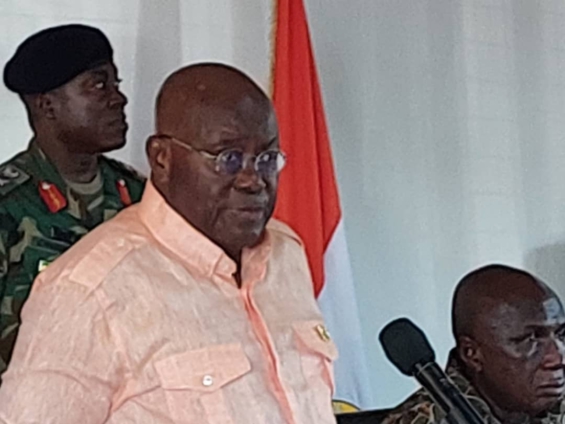The Director of the Institute of Local Government Service, Professor Nicholas Awortwi, says it takes a courageous leader to voluntarily dilute their power for the advancement of a decentralized system of governance.
He was speaking in reference to President Akufo-Addo’s determination to ensure that the 1992 constitution is amended to allow for the election of mayors at the local government level based on a multi-party system rather than the current system where they are appointed by the ruling government.
Describing Article 553 PNDC law 207 as a military regime export which does not reflect the multi-party democratic dispensation of Ghana, he noted that it is time for its amendment.
According to him, its continuous existence in Ghana’s political system has created the tendency where those in power use it to their advantage to appoint their foot soldiers and cronies into local government systems.
Speaking on JoyNews’ PM Express, Prof. Awortwi said, “once a system is put in place and that system benefits some individuals and institutions there’s a tendency for them to hold on to that institution and to not change it because it benefits some people.
“And that’s why we have seen political parties, anytime they’re in opposition they want that change. But when they’re in government, they want it maintained so that they could use the opportunity that it provides to provide jobs for party foot soldiers, for those who actually campaign for them so to fill in the political positions.
“So once you have that political advantage, you wouldn’t want to lose it. And then you will need courage, you will need a leader who says I want to let my power go. And I have done this research in other places. In many countries, especially in Latin America, when they moved from appointment of Mayors to election of Mayors it was a time when the government knew that it was going to lose elections and it did.”
In 2019, President Akufo-Addo had initiated actions to hold a referendum to introduce the multi-party system in Ghana’s local government system.
However, following stiff opposition from the National Democratic Congress and other civil society organization who had raised concerns that the introduction of a multi-party system would increase the polarization of politics in Ghana, the referendum was abandoned.
According to Prof. Awortwi, currently, consensus building is ongoing in order to reach a common agreement on the fate of politics at the local government level, as the President has expressed determination to have mayors elected.
Latest Stories
-
CHAN 2024Q: Ghana’s Black Galaxies held by Nigeria in first-leg tie
10 minutes -
Dr Nduom hopeful defunct GN bank will be restored under Mahama administration
44 minutes -
Bridget Bonnie celebrates NDC Victory, champions hope for women and youth
51 minutes -
Shamima Muslim urges youth to lead Ghana’s renewal at 18Plus4NDC anniversary
2 hours -
Akufo-Addo condemns post-election violence, blames NDC
2 hours -
DAMC, Free Food Company, to distribute 10,000 packs of food to street kids
3 hours -
Kwame Boafo Akuffo: Court ruling on re-collation flawed
4 hours -
Samuel Yaw Adusei: The strategist behind NDC’s electoral security in Ashanti region
4 hours -
I’m confident posterity will judge my performance well – Akufo-Addo
4 hours -
Syria’s minorities seek security as country charts new future
5 hours -
Prof. Nana Aba Appiah Amfo re-appointed as Vice-Chancellor of the University of Ghana
5 hours -
German police probe market attack security and warnings
5 hours -
Grief and anger in Magdeburg after Christmas market attack
5 hours -
Baltasar Coin becomes first Ghanaian meme coin to hit DEX Screener at $100K market cap
5 hours -
EC blames re-collation of disputed results on widespread lawlessness by party supporters
6 hours

